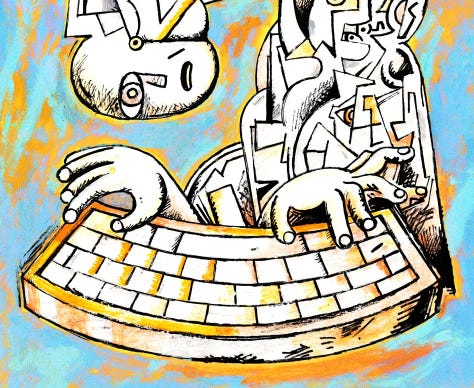The Jim Acosta interview was difficult to process in the precise way that many things in this AI moment are difficult to process. I was grossed out by Acosta for “turning a murdered child into content,” as the critic Parker Molloy put it, and angry with the tech companies that now offer a monkey’s paw in the form of products that can reanimate the dead. I was alarmed when Oliver’s father told Acosta during their follow-up conversation that Oliver “is going to start having followers,” suggesting an era of murdered children as influencers.
At the same time, I understood the compulsion of Oliver’s parents, still processing their profound grief, to do anything in their power to preserve their son’s memory and to make meaning out of senseless violence. How could I possibly judge the loss that leads Oliver’s mother to talk to the chatbot for hours on end, as his father described to Acosta—what could I do with the knowledge that she loves hearing the chatbot say “I love you, Mommy” in her dead son’s voice?
The interview triggered a feeling that has become exceedingly familiar over the past three years. It is the sinking feeling of a societal race toward a future that feels bloodless, hastily conceived, and shruggingly accepted. Are we really doing this? Who thought this was a good idea?
In this sense, the Acosta interview is just a product of what feels like a collective delusion. This strange brew of shock, confusion, and ambivalence, I’ve realized, is the defining emotion of the generative-AI era.
Three years into the hype, it seems that one of AI’s enduring cultural impacts is to make people feel like they’re losing it.
Read more | THE ATLANTIC

